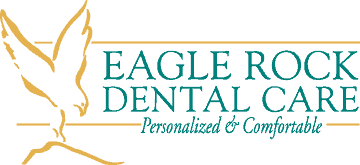Imagine how different your life would be if smiling, eating, or speaking caused you pain, discomfort, or even embarrassment. Thankfully, we live in a world where anyone can obtain the smile they deserve!
The Importance of Braces
There are so many health benefits to braces and this article is going to help explain the importance of braces for anyone at any age. Crooked, misplaced, and crowded teeth make brushing and flossing much more difficult, and as a result pose an enormous risk of tooth decay. Tooth decay is not only unsightly and painful, but also has detrimental effects on the overall health of the rest of your body. In some cases, though, a person with what would be considered “straight” teeth may have been told they are a candidate for braces because of their “bite”. A “bite” refers to the alignment of your jaw. I am sure you are familiar with terms like “overbite” and “underbite”. These are just two types of jaw misalignments that can not only become incredibly painful later in life, but they can also affect the wear and tear on your teeth. Abnormal wear and tear can cause a tooth to be cracked, can wear away at enamel, and cause a number of lifelong problems that are no fun to deal with. Even if you have straight teeth, a recommendation for braces is a serious suggestions that requires serious consideration. With all of these facts added up, the time spent with braces is very minimal compared to a lifetime of dental problems.
There are times when braces are used for vanity’s sake, and that’s ok! A confident smile can make a world of difference in one’s life and can effect job performance, social interaction, and much more. It is proven that lack of confidence can have a very strong negative effect on someone’s life, and no one should feel the need to hide behind their smile. Patients of all ages can obtain the look they want, and with so many new options available, there is no reason not to speak to your dentist about which option suits you best. You deserve the best smile possible!
Frequently Asked Questions About Braces
Q: So many children have braces. How can I tell if my child may need them and how soon?
A: There are many reasons why a child might benefit from braces. You should have your child start seeing a dentist within six months of the first tooth erupting or by age one. There is no set time to get started. Some problems are best treated as early as possible even when it is still mostly baby teeth in place (ages 6-9). Sometimes it is best to wait until most of the baby teeth have fallen out (ages 10-13). If your child is getting regular dental visits, your dentist will be able to determine when it’s time for minor intervention or a full evaluation for braces.
Here are some signs that a child is likely to benefit from braces:
- Early, late, or irregular loss of baby teeth
- Difficulty in chewing or biting
- Crowding, misplaced, or blocked-out teeth
- Jaws that shift or make sounds
- Biting the cheek or roof of the mouth
- Teeth that meet abnormally or not at all
- Jaws and teeth that are out of proportion to the rest of the face
Q: What causes the need for braces?
A: Most orthodontic problems are genetic, meaning you inherited your space or bite problems. Others develop over time due to thumb- or finger-sucking, mouth breathing, dental decay, accidents, or poor nutrition. Or there is not enough room in the jaws for the teeth so they become crowed or crooked, or the jaws don’t line up properly.
Q: At what age should my child be evaluated for orthodontic care?
A: Evaluation of growth and development and treatment of “bite” problems may begin at various stages of dental development, depending on the problems, growth of the child, risks and benefits of treatment or not treating, and interest and or ability of the practitioner.
Some children may benefit from an orthodontic evaluation as young as age 5 or 6 and others can wait until the baby teeth have fallen out and the permanent teeth are coming into place (ages 10-13). Your general or pediatric dentist will help you determine the best time for evaluation and treatment. The American Association of Orthodontists recommends a first evaluation visit to the orthodontist no later than age 7.
Q: What is the best age to be fitted with braces?
A: The best age varies from patient to patient. Orthodontic treatment most commonly begins between ages 8 and 14. Kids in this age range have at least some permanent teeth and are still growing. Some problems, however, are best addressed early, even while mostly baby teeth are present.

